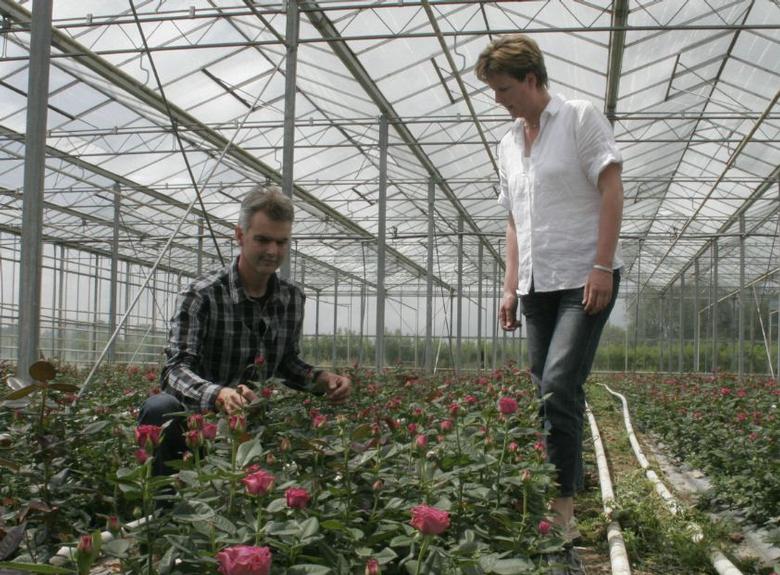Base de Datos de Proyectos de PDR
Biomass Heating for Cut-flower Production
Summary
Use of EAFRD co-financing in the Netherlands to introduce traditional biomass heating back into commercial rose production as part of a successful strategy for economic survival and environmental sustainability in a competitive horticultural sector.
Background
Jos and Rianne Otte from Zeeland in the south west of the Netherlands are commercial rose growers who produce around 1 million roses on an annual basis for the domestic and export markets. The Otte’s grow their roses under cover in 7 200 square metres of greenhouse and were looking for a more environmentally-friendly and cost effective alternative to their existing gas-powered greenhouse heating system.
Objective
The project objective was to introduce biomass as an alternative energy source to natural gas so that the business could meet its energy demands in a way which would a) not damage the environment and b) make the company more socially responsible and financially healthy. Initial financial projections indicated that the biomass investment would have a maximum pay-back period of 4 years, but with the economic downturn this increased to 6 years.
Main activities
A wood-burning furnace was installed as the primary heating source for the greenhouse and is fuel with regionally-produced biomass such as shredded pruning waste, wood sawdust and shredded wooden pallets. The project costs also included construction of storage silos and an automatic feed system for the furnace. This is existing technology, but it is not very often used in horticulture. A network of regional biomass suppliers was also established.
Results & Benefits
The wood-burning stove provides 100% of the heating needs of the greenhouse. The natural gas connection is no longer being used. It has proven economically feasible to heat the greenhouse carbon-neutrally. Mainly because of the lower energy costs. Production has been increased, and the quality of the roses has improved - switching to the biomass burner has therefore been a successful survival strategy in adverse economic circumstances.
Lessons learnt
Pioneers learn by experience and there were some difficult issues to tackle with this project, but finally the investment secured a better chance of economic survival within the rose-growing sector. Lessons learned include: i) the importance of good local contacts to ensure a reliable supply of biomass, and; ii) not to overlook permit procedures e.g. the chimney had to be extended so that the neighbours are not hindered by the exhaust fumes.
Project location and other information
In the province of Zeeland, in the south west of The Netherlands
Region
Zeeland
RDP Territory
Netherlands
Total project cost (€)
210 000
EAFRD contribution (€)
75 000
Private contribution (€)
135 000
Project website
Contact name
Jos and Rianne Otte
Telephone
+31 113 344859
Languages for contact
English, German, Dutch
At a glance
Country
Netherlands
Final beneficiary type
Individual farmers
Budget range
€20 000 - €99 999
Start date:
01/07/2008
End Date:
30/06/2009
Theme / Measure:
• Competitiveness of Agriculture & Forestry
• Restructuring, developing physical potential, and promoting innovation
• 121. Modernisation of agricultural holdings
Keywords:
Greenhouse gas, Recycling, Biomass, Renewable energy, Innovation
Last update
15/02/2012





